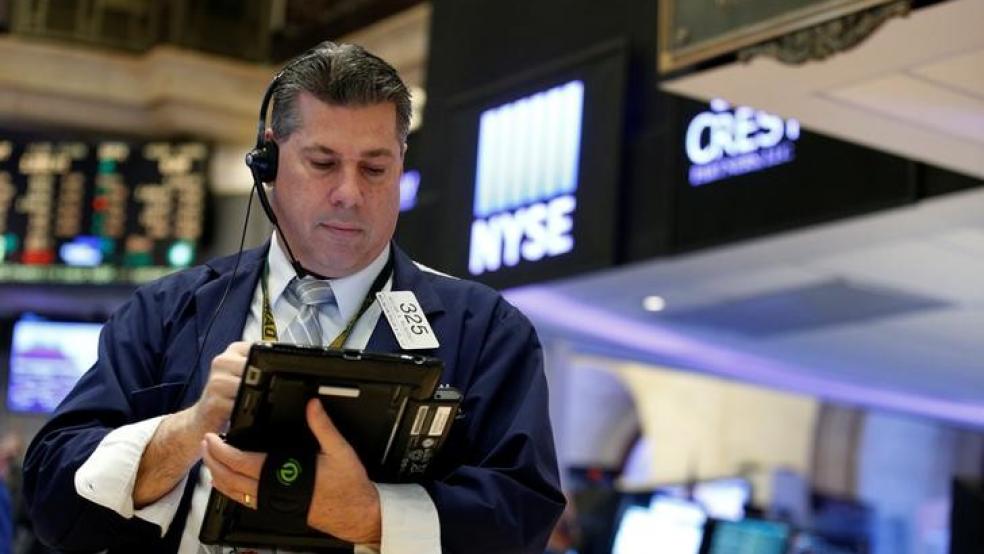(Reuters) - Citigroup Inc, the fourth-biggest U.S. bank by assets, beat expectations for third-quarter net profit on Friday after trading revenue surged 35 percent.
The resurgence, which was echoed at rival JPMorgan, is a boost for Chief Executive Michael Corbat, who has stuck with the bank's trading business while shrinking large parts of its consumer banking business in overseas markets. While net income fell 11 percent to $3.84 billion, or $1.24 per share, it exceeded the average estimate of $1.16 per share, according to Thomson Reuters I/B/E/S. Total adjusted revenue fell 4 percent to $17.76 billion, again beating the average estimate of $17.36 billion. Citigroup's shares rose 2.2 percent to $49.58 in early trading, similar to gains at rivals JPMorgan, Wells Fargo, Goldman Sachs and Morgan Stanley, as investors lauded a solid start to the U.S. bank earnings season. Both JPMorgan and Wells Fargo beat third-quarter profit forecasts on Friday. Bank of America reports results on Monday, followed by Goldman Sachs and Morgan Stanley later next week. CONSUMER BANKINGRevenue at Citi's institutional clients group, which includes trading and investment banking, rose 13 percent, boosted by volatility in fixed income markets. That volatility and greater activity were spurred by Britain's June vote to leave the European Union, changing expectations for monetary policy in the United States, Europe and Japan, and money market reforms. However, equity market revenue fell about 34 percent as political uncertainty discouraged companies from initial public offerings and share offers. JPMorgan reported a 1 percent increase.Citi's global consumer banking division had a less stellar performance. Net income fell by nearly a quarter due to a higher cost of credit and higher operating expenses.Part of those expenses were due to the cost of becoming the lender behind retailer Costco Wholesale Corp.’s co-branded credit cards this year from American Express Co.Citigroup said revenue from its North American branded card business grew 15 percent to $2.2 billion, reflecting the addition of the Costco portfolio as well as modest organic growth driven by higher volumes.The business accounts for about a quarter of its total net income and a third of profit from its global consumer franchises.Citigroup executives have said the branded card business is expected to generate a 2.3 percent return on assets, more than double the profitability of the entire company.Overall operating expenses fell 2.5 percent to $10.40 billion.PROFIT TARGETSDespite the solid performance in investment banking, Corbat fell further behind in his quest to reach a 10 percent return on tangible common equity, a key measure of profitability. It fell to 7.8 percent from 8.9 percent a year earlier.Corbat had set the target of reaching a 10 percent return on equity by 2015 shortly after taking the reins in 2012. But the bank has found it hard to hit the target as its earnings are squeezed by low interest rates and the U.S. Federal Reserve's requirement that banks retain more capital.Analysts say the Fed would need to allow the bank to return as much as it earns to significantly improve shareholders' returns and the Fed now lets Citi distribute about 65 percent of its capital. Corbat reached that level in June when he won approval from the regulator to triple the bank's dividend and increase spending on its stock buybacks by more than a third.Previously, Citi had failed Fed tests of its capital plans twice.The bank's common equity Tier 1 capital rose to 12.6 percent from 12.5 percent in the second quarter even as Citigroup returned capital to shareholders through dividends and share buybacks.The stock had lost 6.3 percent this year as of Thursday's closing price of $48.47.Citigroup's stock has languished at a steep discount to its tangible book value, which was $64.71 at the end of September. (Writing by Carmel Crimmins; Editing by Anil D'Silva and Bernadette Baum)Citigroup beats profit expectations on bond trading comeback

BRENDAN MCDERMID



